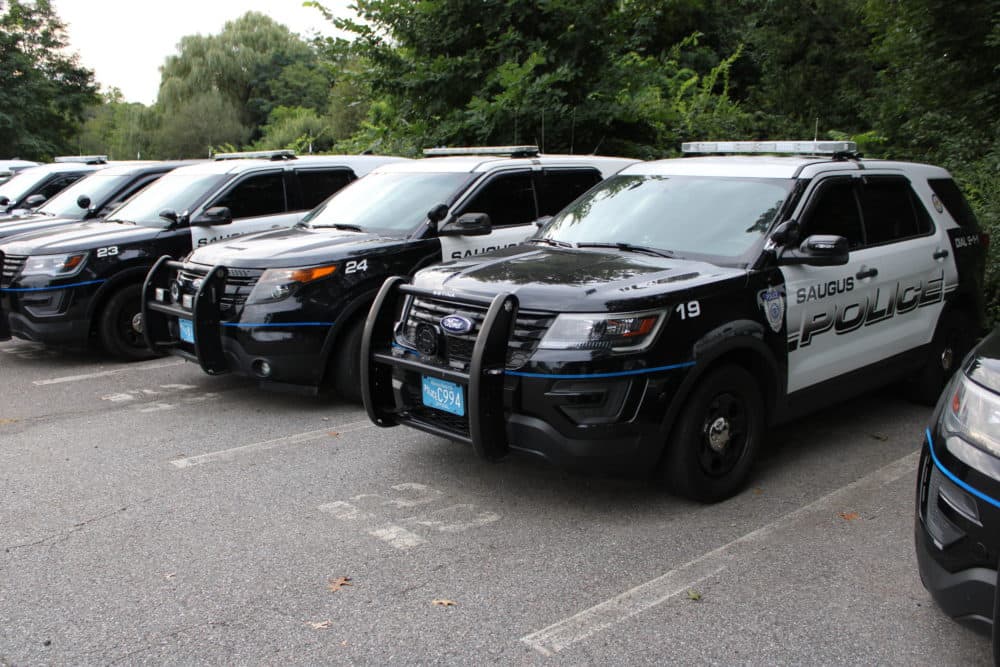Advertisement
Saugus Police Shooting Was Just The Latest Involving Mental Health Issues
Resume
Karen Gillis’ son Danny was killed by Pittsfield police in 2017. Investigators say Danny had a knife and provoked police into shooting him — a phenomenon known as suicide by cop.
Gillis said Danny was drunk that day and had struggled with mental health problems for years. But she thinks her son might still be alive if social workers had showed up instead of police.
"Call in the crisis team before the cops," she said. "Have someone talk to you before a cop comes in. Because in my opinion, they automatically got their hands on that gun."
More than 1,400 people with a mental health condition have been killed in a police shooting across the country since 2015, according to the Washington Post, which has compiled a database of police shootings. That's despite efforts by police departments across the country to better deal with mental health calls.
In Massachusetts, Stephanie Gerardi is the latest victim. Saugus police shot and killed the 38-year-old mother a week ago, after her family called for help because she was suffering a mental health crisis.
Timothy Burton, a former police chief who now works for the National Alliance on Mental Illness in Massachusetts, said there will always be situations that end tragically.
"Certainly we could do a better job at preparing for the response to these scenes so that we enhance the chances of an outcome being peaceful and no one be hurt," he said.
Many departments are trying to make changes. Police chiefs have put most of their efforts into better training, so officers can learn to spot signs of mental illness and try to calm someone down before the situation becomes violent. Last year alone, 125 communities in Massachusetts trained officers in crisis intervention and mental health.
And dozens of departments have also hired social workers to respond to calls with police or follow up afterward to make sure people get treatment. That includes Pittsfield, where Gillis died.
"That's growing every day because the awareness of the effectiveness of these models is becoming known," Burton said.
Advocates have also proposed legislation to revamp the way 911 calls are handled statewide to send more mental health clinicians along with police and fire response.
The Boston Police Department recently changed its policy for handling situations with people in crisis to emphasize de-escalation. And Boston acting Mayor Kim Janey just announced a pilot program to send paramedics and mental health workers to some calls instead of police
"These investments will help connect residents and their families with the care they need," she said at a press conference announcing the pilot. "They will also help us send officers to where they are needed most."
But even when mental health workers are present, things can still end badly. Michael Conlon, 28, was killed by Newton police in January after police say he threatened a store owner with a knife and then tried to attack officers.
A mental health clinician was on scene, but never made it to Conlon because police said it was too dangerous.
Some mental health workers say more needs to be done to help people before the situation becomes so desperate that police must be brought in. By the time someone calls 911, it might be too late.
"It's frustrating for me because the police are like the service provider of last resort," said Annabel Lane, a social worker embedded with the Brookline police. "Whether it's me or a police officer, there's only so much that you can do in the one moment of crisis. You're not going to resolve all of the complicated underlying issues that led to that crisis."
Police commanders, like Brookline police Deputy Superintendent Jennifer Paster, said they wish they didn’t get these kinds of calls. But Pastor said crisis training can help.
She recalled a situation last year, when a pregnant woman with a knife called 911 to say she wanted to end her life.
"Our officer recognized the name right away, responded across town and was able to get her to put the knife down and to go to an emergency room," she said.
Ultimately, Paster said people like that woman need better long term care.
"I hope that social workers and mental health providers can put us out of business," she said. "Because it's just such heartbreaking work to see somebody in crisis. Nobody wants to see us."
Until that problem gets solved, police will keep getting these calls. And all too often, some will end in another deadly shooting.
This segment aired on August 24, 2021.
